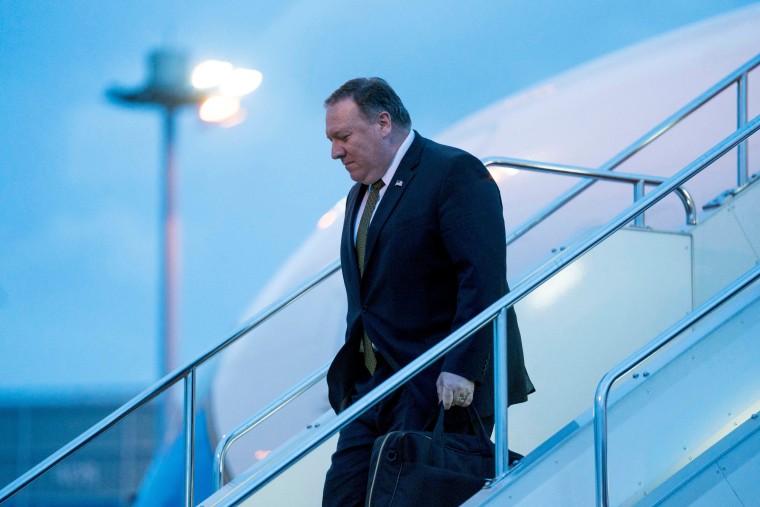A couple of years ago, during the debate over Republican efforts to "repeal and replace" the Affordable Care Act, then-Rep. Robert Pittenger (R-N.C.) raised an unusual argument: his party's approach may require American families to relocate.
If the ACA were scrapped, and conservative states began punishing those with pre-existing conditions, people could simply "go to the state that they want to live in," Pittenger argued.
As we discussed at the time, it was an awkward pitch. Perhaps you have a heart condition? Under the Republican plan, you should be prepared to leave your job, sell your home, and move to a blue state.
All of this came to mind when Secretary of State Mike Pompeo reflected on the effects of the climate crisis and suggested that populations can simply relocate to somewhere unaffected.
"The climate's been changing a long time. There's always changes that take place," Pompeo said during an interview with the Washington Times published Friday, when asked whether he thought climate change was man-made and how best to address it. He did not mention anything about man-made pollution in his remarks."Societies reorganize, we move to different places, we develop technology and innovation," he added. "I am convinced, I am convinced that we will do the things necessary as the climate changes."
It's worth taking a moment to appreciate just how breathtakingly misguided this posture is.
For example, whether the Kansas Republican has thought about this or not, relocating tens of millions of environmental refugees "to different places" is a bit more difficult than Pompeo seems to appreciate.
If the climate crisis ravages parts of central Africa, for example, where does Donald Trump's chief diplomat expect those massive populations to go? How would a relocation process work?
Complicating matters, of course, is the bizarre belief that certain parts of the planet will somehow be immune from the effects of climate change. To hear Pompeo tell it, some parts of the world may be devastated, but the people there can simply move "to different places" that are in better shape.
But to assume the problems would be isolated is to make a terrible mistake. I'm reminded of the phrasing from the Trump administration's annual "Worldwide Threat Assessment" report: "Climate hazards such as extreme weather, higher temperatures, droughts, floods, wildfires, storms, sea level rise, soil degradation, and acidifying oceans are intensifying, threatening infrastructure, health, and water and food security."
If your plan for the climate crisis is based in part on encouraging people to relocate "to different places," it's time for a new plan.
